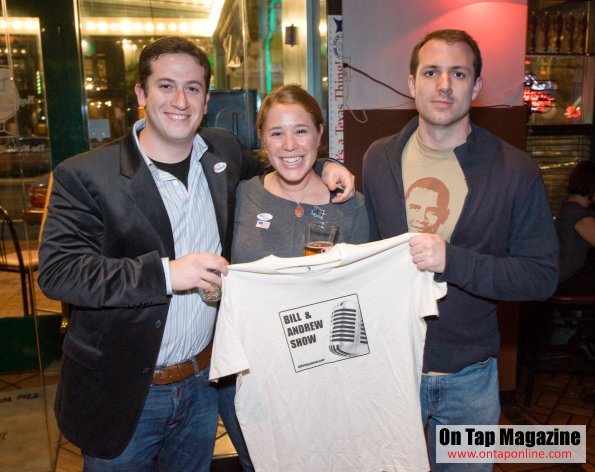Early in January, Comedy Central’s Stephen Colbert sat down with Lawrence Lessig. The interview was typical Colbert tongue-in-cheek, but good for a laugh. For those of you not closely following the implosion of the music industry and subsequent recreation as a more inclusive forum, Lessig is the author of Remix: Making Art and Commerce Thrive in the Hybrid Economy, a book that examines methods of creating revenue out of creative work. The example Lessig used while talking to Colbert was Flickr which allows users to post pictures which Flickr can then create revenue from. But Lessig’s primary argument is that the war on Peer-to-Peer file sharing has failed (he’ll get no argument here) and that the copyright laws are outdated with the vast number of increasing ways people can share, remix and alter original work while making something new. In a way, every blog does this. This post in itself is a remix of two interviews, the functions of two websites and my arrangement of these facts with my thoughts. It’s about as close as I come to making music. The DIY explosion in music is part of the culture that has helped spawn mash-ups like Danger Mouse’s Grey Album (The Beatles’ White Album/Jay-Z’s Black Album) and AmpLive’s Rainydayz Remixes (AmpLive remixing Radiohead‘s In Rainbows.) The point is that technology and the rapidly evolving music industry need to find common ground with artists, and not just other musicians, but all artists, as the mixed media medium is something that can only grow from here.
Well, when Colbert was very specific about becoming “possibly litigious” should anyone take portions of his interview and remix it with a dance beat, he had to do so knowing full-well that someone would. He wasn’t disappointed as two days later, internet upstart IndabaMusic jumped into the fray with a full site devoted to remixing the Colbert/Lessig interview. But it didn’t end there, did it? With Colbert, how could it? Never being one to avoid an opportunity to poke fun at himself, Colbert remixed a video of his own work to a pulsing dance beat, and told the remixers to lay off again, to of course encourage them to remix more. Enter Dan Zaccagnino, head of Indaba who had an interview on Colbert the other night (interview at 14m in) to talk about the remix culture. Of course, these types of remixes are nothing new over at MixMatchMusic, which has had success with their Remix Wizard. While the Indaba/Colbert remix contest is excellent, it is Indaba based. MMM’s Remix Wizard is a free widget that can be set up and used by any artist on their website to host remix promotions. It doesn’t even need to have anything to do with music, as evidenced by Remix Sarah Palin.
While Colbert’s thoughts in the interviews with Lessig and Zaccagnino are clearly meant to be humorous, they serve a larger purpose in that these episodes help create buzz for a rapidly growing and increasingly important segment of the music industry: collaborative pieces brought about through alternative means. Indaba has managed to create a large community of musicians from around the world who are engaging in internet based musical collaboration, and this is a huge first step in breaking down barriers within the recording industry.
But with every broken barrier comes the question of the next frontier. While Colbert asked Zaccagnino what happens to girlfriends breaking up bands if the musicians collaborate on the internet, he failed in his attempts at humor to get to the root of the issue, namely monetization of content. While not many musicians will actively think internet collaboration as a means to avoid break-ups with their significant others, a most serious topic of interest to them is how they can profit from their work. No artist likes the idea of losing control over their work, but if knowing that the usage of their work by others would create tangible income for them, the concept of collaboration and other artists who liked them enough to mix them with their own pieces becomes a much more appealing, and therefore widespread trend. As with the foresight of their DIY remix widgets, MixMatchMusic provides the ability for artists to monetize collaboratively made songs, as well as contribute stems to their social sample library to earn royalties.
The monetization of artist work and internet collaboration is the next step in the rebuilding of the music industry. As fans become more involved with the artists because they are part of a shared internet workspace, the desire to support an artist will increase. Add to that the ability to remix their favorite artist’s work, and the fan interaction with the music becomes uncaged. Forget making a mixtape for a friend. Imagine taking your favorite songs and going Girl Talk on them. This interest and desire to support the artist would in turn funnel revenue back to the musicians.
The recording industry would say that this has been the goal of their war on file sharing, but that is an outrageous lie as most artists never see a dime of the few settlements the RIAA succeeds in obtaining. Little wonder then that the RIAA is backing down. In fact, one could argue that the backlash against the recording industry has been fueled by the consumer perspective that the artists aren’t seeing the profits they should. Furthermore, as revenue streams move away from the major labels and into the artists’ pockets, the majors will be forced to work with both musicians and consumers on more viable distribution and revenue models.
But forget about the money and the labels and the upheaval in the industry. How will this help music evolve? As more artists turn to internet collaboration because their work is safe and profitable, the inevitable evolution of genres and musical landscapes will grow exponentially. Think The Beatles and Jay-Z were cool? What happens when you can take a French hip-hopper’s lyrics, a tribal drum beat from a musician in Africa, a flute melody from Tokyo and a guitar piece from Columbus, Ohio, and add it to your piano piece from the comfort of your home and computer? Sure, you could make money, but look at what your collaboration has created musically. When internet collaboration is monetized and all-inclusive, the community becomes the music industry, and the listeners become the musicians.










